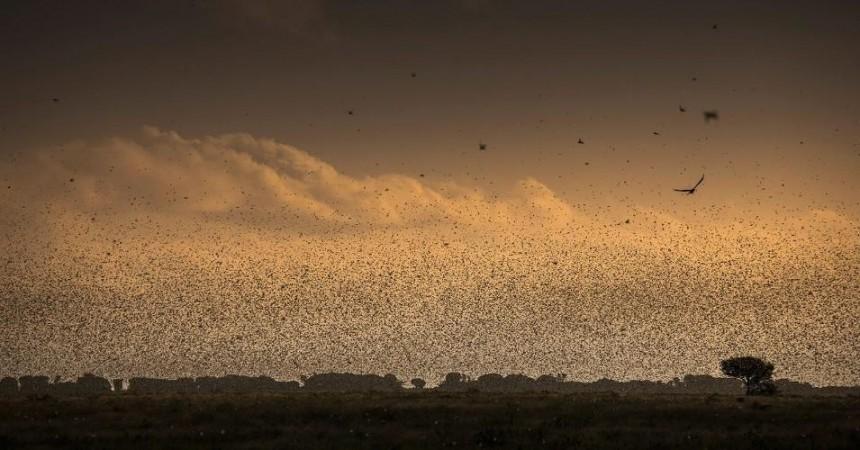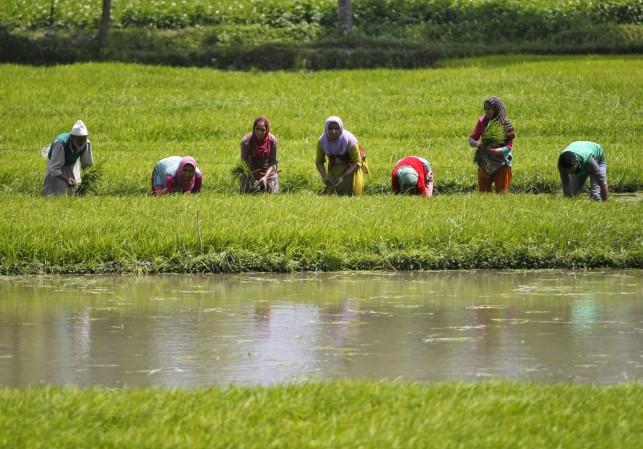As the world reels under the coronavirus pandemic; there is a bigger problem that we need to pay heed to because if we don't, millions will starve. So, after coronavirus, it is the hunger that will kill humankind and the prime reason for this will be locust swarms eating up the produce in several countries and if this is not dealt with in time, we will be in the soup.
Since the beginning of 2020, East African nations have been battling swarms of desert locusts. In decades, this is being called the worst outbreak the region has seen and the Food and Agriculture Organization of the United Nations has been warning that the rising numbers of desert locusts point at an enormously distressing threat to food security and livelihoods in the Horn of Africa.

Locusts are a bigger problem
The already prevalent coronavirus crisis has heightened due to a dangerous increase in locust swarm activity. Locusts are insects, approximately the length of a finger, and they fly together in millions to take advantage of the suddenly abundant food supply. They eat crops, destroy grazing plots, and pose a serious threat to the already frail local economies.
The Indian Ocean Dipole led to this year's locust swarms and it also led to extreme drought in Australia and torrential rain in East Africa.
At least one swarm measuring 60km long and 40km wide in Kenya's northeast, three times the size of New York City, was reported.
Locusts can lead the world to an extreme drought.
According to the UN's FAO, desert locusts have the capacity to travel up to 150km in a day and eat their own body weight in greenery. A swarm just one-kilometer square, equal to 40-80 million insects, can eat as much food as 35,000 people will consume in a day.

Swarms have crossed the Red Sea to Yemen and Saudi Arabia and even reached Iran, Pakistan, and India, and by this year's end, this will pose a serious threat to the food supplies of 20 million people.
New breeding will also take place worsening the locust problem. But due to the coronavirus pandemic, this deadly problem has probably taken a back seat.
We do not have time
According to Jennifer Zhu Scott, a Ted speaker, and Forbes World's top 50 women in Tech, "The locust problem is underestimated. We have a few weeks to keep it under control. Large swarms were seen in Saudi dessert in mid-March. If it damages India, we will be in a chain of events that set off food security problems this year. We have a few weeks only."
Meanwhile people in the USA are reporting that farmers are dumping their potato produce because there are no buyers and consumers due to the coronavirus pandemic.
Scott added, "Meanwhile, farmers in the US have to destroy excessive productions due to broken supply chain or lack of demands. Oil crisis also cause ethanol crash, a large amount of corn produced will have to be dumped. Yes, we will have millions starving, while this happens this year."
The locust problem is underestimated. We have a few weeks to keep it under control. Large swarms were seen in Saudi dessert in mid March. If it damages India, we will be in a chain events that set off food security problems this year.
— Jen Zhu (@jenzhuscott) April 24, 2020
We have a few weeks only. https://t.co/Pi1f5PBIIu
Coronavirus in Africa
Cases of the coronavirus virus have been reported in Ethiopia, Sudan, Somalia, Kenya, Uganda, Djibouti, which has led to many countries sealing its borders and banning international flights, and announcing complete lockdown.
World Health Organisation (WHO) director Tedros Adhanom Ghebreyesus warned, "Probably we have undetected cases or unreported cases. In other countries, we have seen how the virus actually accelerates after a certain tipping point, so the best advice for Africa is to prepare for the worst and prepare today."

















